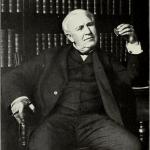Neil Sedaka once noted that breaking up is hard to do. Even harder, it seems, is doing good science. Why?
science
In a miraculous example of not making the perfect the enemy of the good, two women’s lives were saved through ongoing innovation in organ t
I am a scientist. I even have the credentials to prove it. There is a PhD degree in microbiology hanging on my wall and a few peer-reviewed publications to my name.
The exhaled breath or “blow” squirted from the Eastern Australian humpback whale is replete with its own viral ecosystem or virome.
Innovation remains a “holy grail” for business where it may unlock new sources of income and in science where it increases our knowledge and promotes the careers and status of the innovators.
The U.S. Congress is made up mostly of professional politicians and lawyers. This comes as a surprise to precisely no one, but the sheer numbers are rather striking.
A potentially heartwarming development has occurred in recent days.
A high-profile paper published in Science earlier this year is in jeopardy because of events th
Unbeknownst to David Seidemann, a geology professor at Brooklyn College and scientific advisor to ACSH, he was placed on a hit list by the academic PC mafia.












